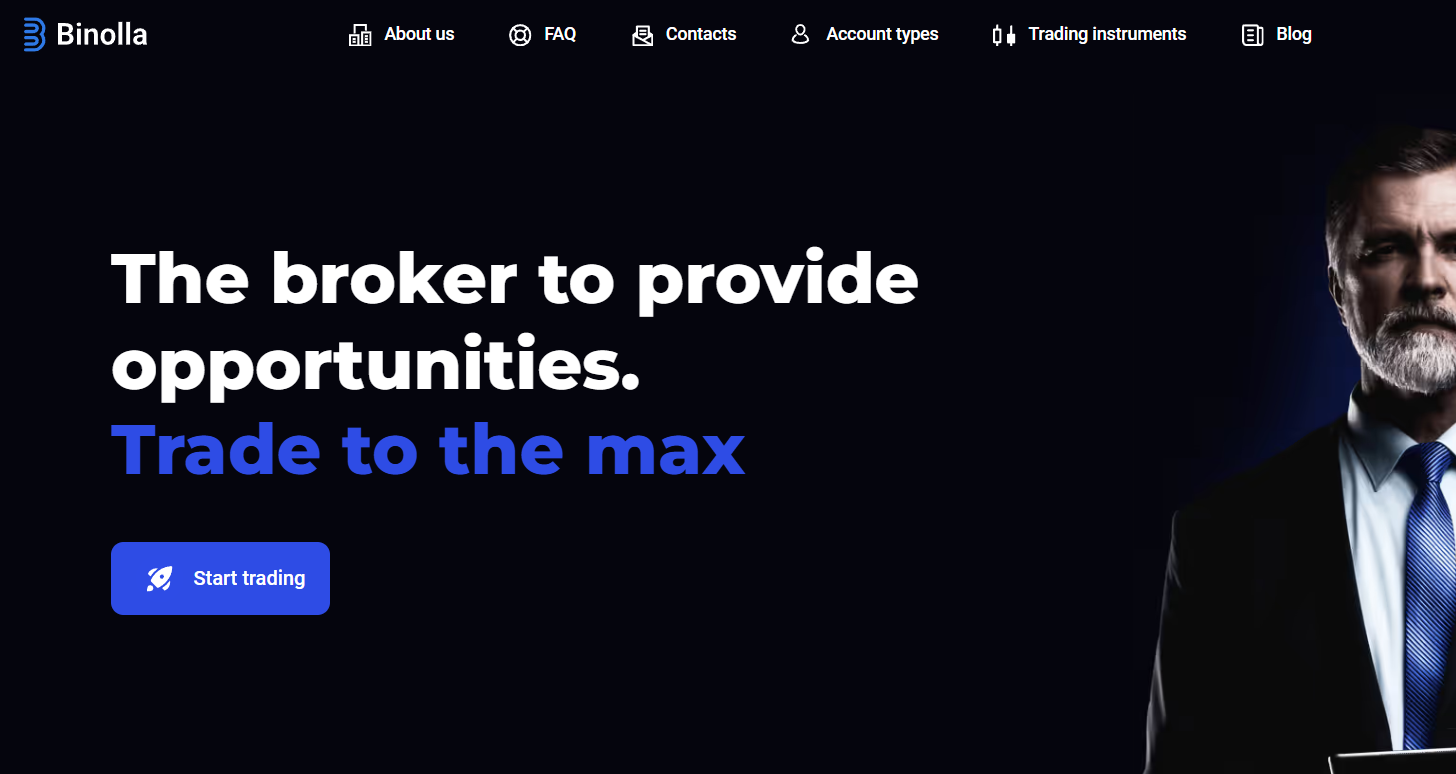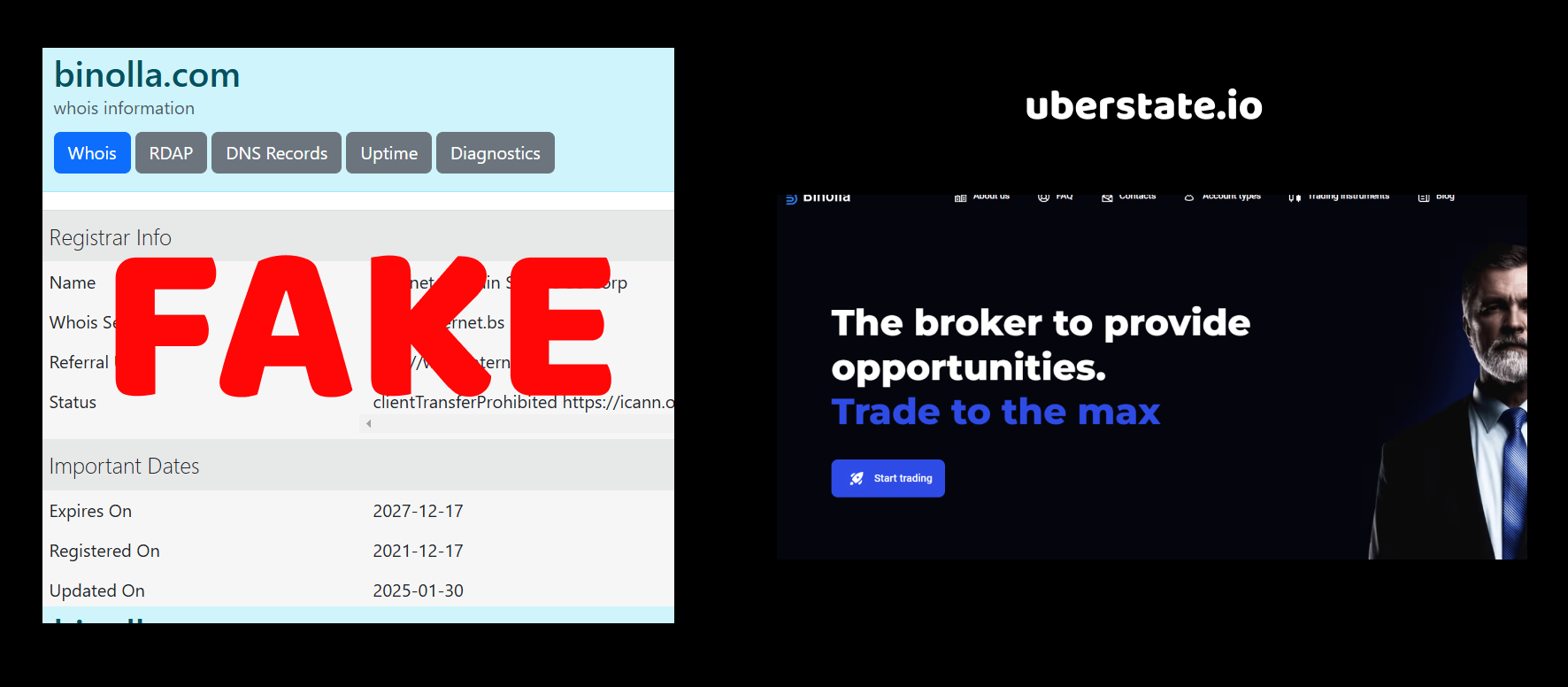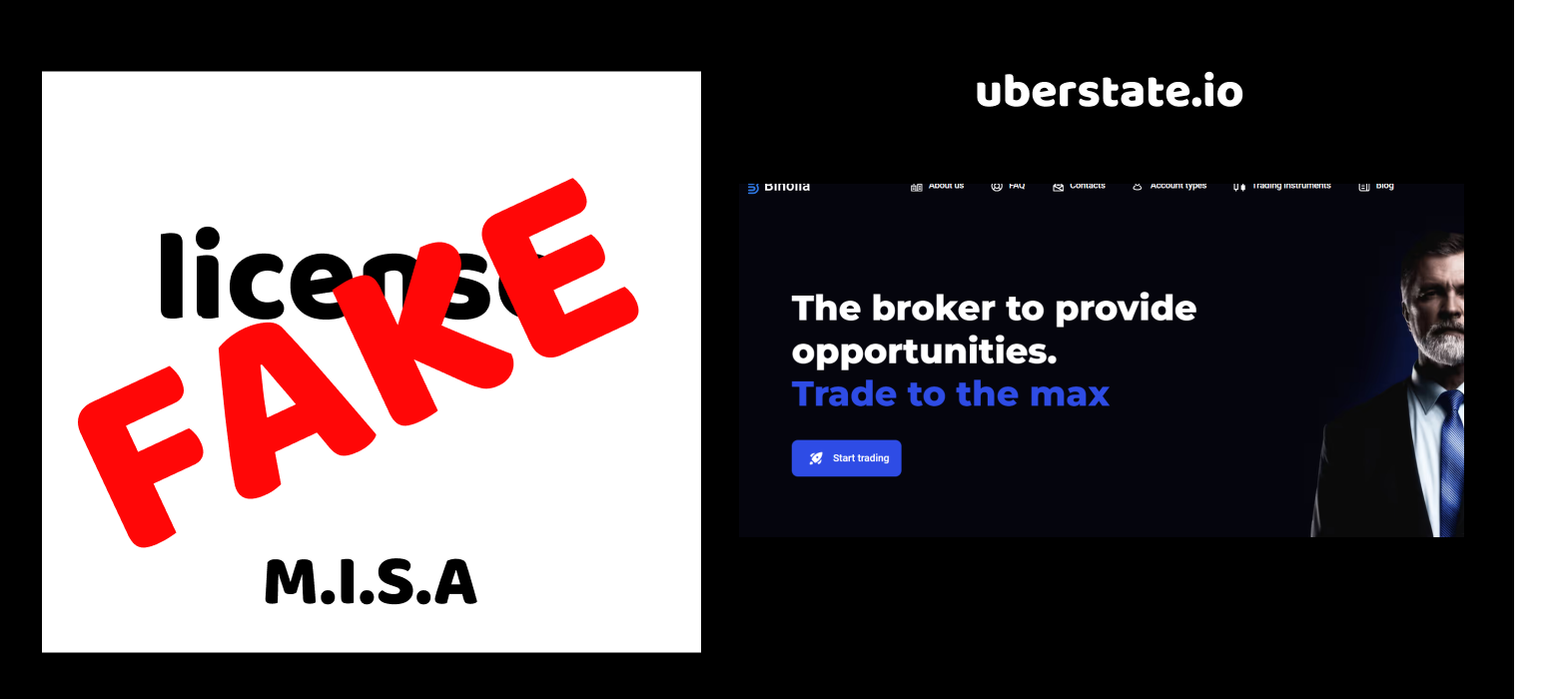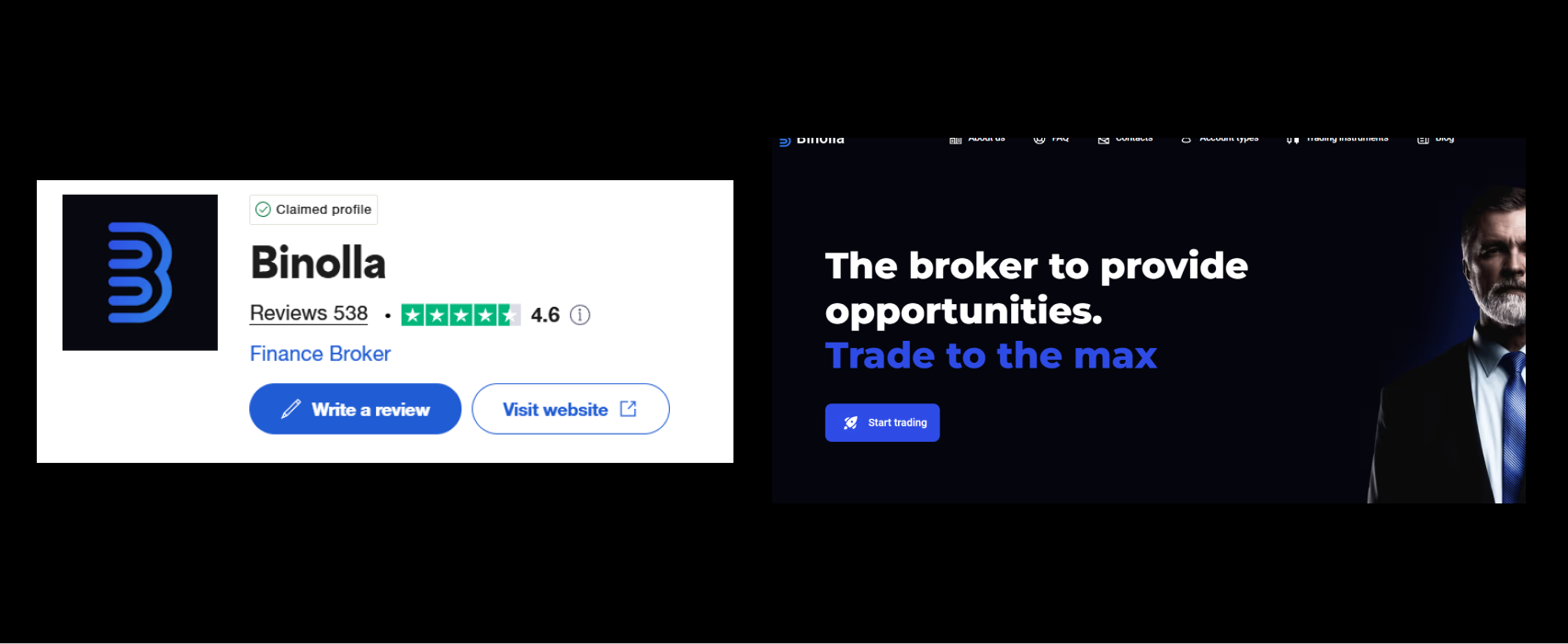Binolla Review: Is This Broker as Trustworthy as It Claims?

The forex market is filled with brokers promising incredible trading conditions, but how many of them are actually legit? Binolla presents itself as a well-established, high-quality brokerage, but as soon as we started investigating, things didn’t quite add up.
With an offshore license, a suspicious domain registration date, and potentially fake reviews, there are plenty of red flags traders need to be aware of before trusting this broker. In this review, we’ll break down every critical aspect of Binolla to uncover the truth—so you can decide whether it’s a safe choice or just another forex scam.
| Category | Details |
| Website | binolla.com |
| Established | 2019 (but domain registered in 2021) |
| Regulation | M.I.S.A (Unreliable offshore license) |
| Languages | English |
| Trading Platform | МТ5 |
| Leverage | 1:2000 |
| Account Types | ECN Account ($10), Zero Account ($10) |
| Restricted Countries | USA, Canada, EEA, UK, Hong Kong |
| Trustpilot Score | 4.6 |
| Total Reviews | 534 |
| Negative Reviews | 9 |
| Contact Information | [email protected] |
Binolla Review: Domain Registration Date – A Red Flag?
One of the first things we checked about Binolla was its domain registration date. And guess what? There’s already something off.
Binolla claims to have been established in 2019, presenting itself as an experienced and well-grounded broker. But when did the domain binolla.com actually go live? Our research uncovered that the domain was only purchased on December 17, 2021—a full two years after the company supposedly started operating.
This mismatch raises a crucial question: How could a broker operate for two years without a website? That’s just not how things work in the modern forex industry. Any legitimate broker would have an online presence from day one. But in Binolla’s case, they seemingly “existed” in 2019 but didn’t bother to secure a domain until the end of 2021.
This kind of inconsistency is typical for scam brokers. They often backdate their establishment year to appear more trustworthy and experienced than they really are. After all, would you feel comfortable trusting your money to a broker that just popped up out of nowhere?
It’s clear that something doesn’t add up. And unfortunately, this is just the beginning of the red flags we found on Binolla.

Binolla Review: Fake or Unreliable License?
When we dug into Binolla’s regulatory claims, we quickly found a glaring issue: their so-called license cannot be trusted. Let’s break it down.
Binolla claims to be regulated by M.I.S.A (Mwali International Services Authority)—a name that might sound official but, in reality, carries little to no weight in the financial world. M.I.S.A is a regulatory body from Comoros, a small island nation that has become a popular haven for scam brokers. Why? Because the oversight there is practically non-existent.
Think about it: would a serious, transparent broker choose a shady offshore regulator when real, respected authorities like FCA (UK), CySEC (Cyprus), or ASIC (Australia) exist? Of course not. Legitimate brokers seek licenses from well-established regulatory agencies that enforce strict rules, protect traders, and ensure financial security.
So what does M.I.S.A actually do? Nothing useful for traders. It hands out licenses with almost no due diligence, allowing brokers to operate without accountability. If something goes wrong—if Binolla freezes your withdrawals or disappears overnight—you won’t have a proper authority to turn to for help.
This isn’t just speculation. Many scam brokers use the same tactic: they register in offshore jurisdictions with weak regulations to create a false sense of legitimacy. In reality, this kind of “license” offers zero protection for traders.
The bottom line? Binolla’s so-called regulation is a huge red flag. And when a broker’s license can’t be trusted, it’s usually a sign that bigger problems are lurking beneath the surface.

Binolla Review: Fake Reviews or Genuine Praise? Let’s Investigate
Binolla boasts a 4.6-star rating on Trustpilot, which at first glance might make it seem like a trustworthy broker. But after analyzing the reviews, things don’t look as good as they seem.
The suspicious pattern of positive reviews
Binolla has 534 reviews on Trustpilot, yet only 9 are negative. That’s an unusually high percentage of positive feedback—especially in the forex industry, where even the best brokers receive a fair amount of criticism. The question is: are these reviews genuine, or are they artificially inflated?
Here’s what we noticed:
- Many 5-star reviews are written in a similar style, often using generic praise like “Best broker ever! Fast withdrawals, great support”—without giving any real details.
- Most positive reviews come from new accounts with only one review, which is a classic sign of paid or fake feedback.
- Some users who left bad reviews reported that Binolla asked them to delete their negative feedback in exchange for “assistance”—another shady tactic used by scam brokers to maintain a high rating.
The reality behind the negative reviews
Despite the flood of positive feedback, the negative reviews paint a very different picture. Traders who gave Binolla low ratings mention serious complaints:
- Withdrawal issues—delayed or outright blocked requests when trying to withdraw profits.
- Account manipulation—unexpected balance changes and suspicious trading activity.
- Unresponsive customer support—ignoring emails and refusing to resolve complaints.
This kind of discrepancy is a major red flag. A real broker will always have a mix of positive and negative feedback, but when a company suppresses criticism and inflates its rating with fake reviews, it’s clear they’re trying to hide something.
So, is Binolla’s high rating a sign of quality? Not at all. It’s just another example of how scam brokers manufacture a good reputation to lure in unsuspecting traders.

Final Verdict: Is Binolla a Scam?
After thoroughly analyzing Binolla, the evidence is clear: this broker raises too many red flags to be trusted. Let’s recap the biggest concerns:
Fake Establishment Date – Binolla claims to have been operating since 2019, but its domain was only registered in December 2021. Why the deception? Likely to appear more experienced than it actually is.
Unreliable Offshore License – The broker is “regulated” by M.I.S.A (Mwali International Services Authority), a weak offshore regulator that offers zero trader protection. If something goes wrong, you’ll have no legal recourse.
Suspicious Trustpilot Reviews – Binolla has a 4.6-star rating, but many reviews appear fake or manipulated. Real users report issues with withdrawals, account manipulation, and unresponsive support.
Extreme Leverage (1:2000) – Such high leverage is a classic tactic of scam brokers, luring in traders with promises of big profits while exposing them to extreme risk.
With all these issues combined, Binolla fits the profile of a typical scam broker. They use a polished website, fake credibility, and misleading reviews to attract traders, but when it comes to actual transparency and trustworthiness, they fail miserably.
Should You Trade with Binolla?
Absolutely not. There are far better and safer brokers out there with real regulation and a proven track record. If you value your money and security, stay away from Binolla—or you might end up being just another victim of their shady tactics.







